Sitting at a desk right now? Take note of your body position. (Freeze! We see you adjusting your posture!)
Before the adjustment, we’re willing to bet you were hunched over, leaning on one arm rest or sitting with a leg propped underneath you. You may be comfortable, but the truth is, many of our habits when it comes to sitting at our desks can actually have long-term health implications (not to mention cause energy slumps and back pain right now).
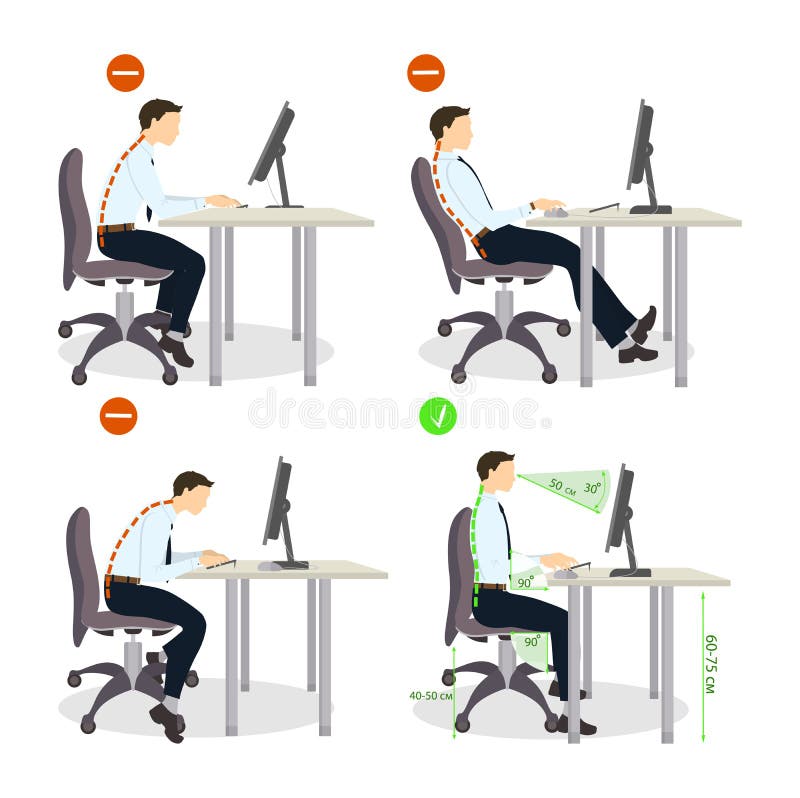
Ergonomics — or the science of designing the workplace — has become a popular buzzword over the past few years, as standing desks become increasingly trendy and more and more of your co-workers are replacing standard chairs with medicine balls.
According to the US Department of Labor, “ergonomics is the science of designing the job to fit the worker, rather than physically forcing the worker’s body to fit the job.”
” Ergonomics is the science of designing the job to fit the worker, rather than physically forcing the worker’s body to fit the job. The rise in popularity of ergonomics among office workers is stemming mainly from increased musculoskeletal symptoms associated with longer work durations and poor workstation design,”
A renewed focus on promoting health and well-being in the workplace has also spurred interest in ergonomics and proper workstation setup. A renewed focus on promoting health and well-being in the workplace has also spurred interest in ergonomics and proper workstation setup. They conform their body to the work station and this is what leads to discomfort and fatigue.
Studies show that poor workstation ergonomics increase the risk of musculoskeletal problems and symptoms. There are several health related issues that can be linked to poor ergonomics. Prolonged sitting and static postures have been associated with cardiovascular and circulatory diseases, weight gain and low back disorder.
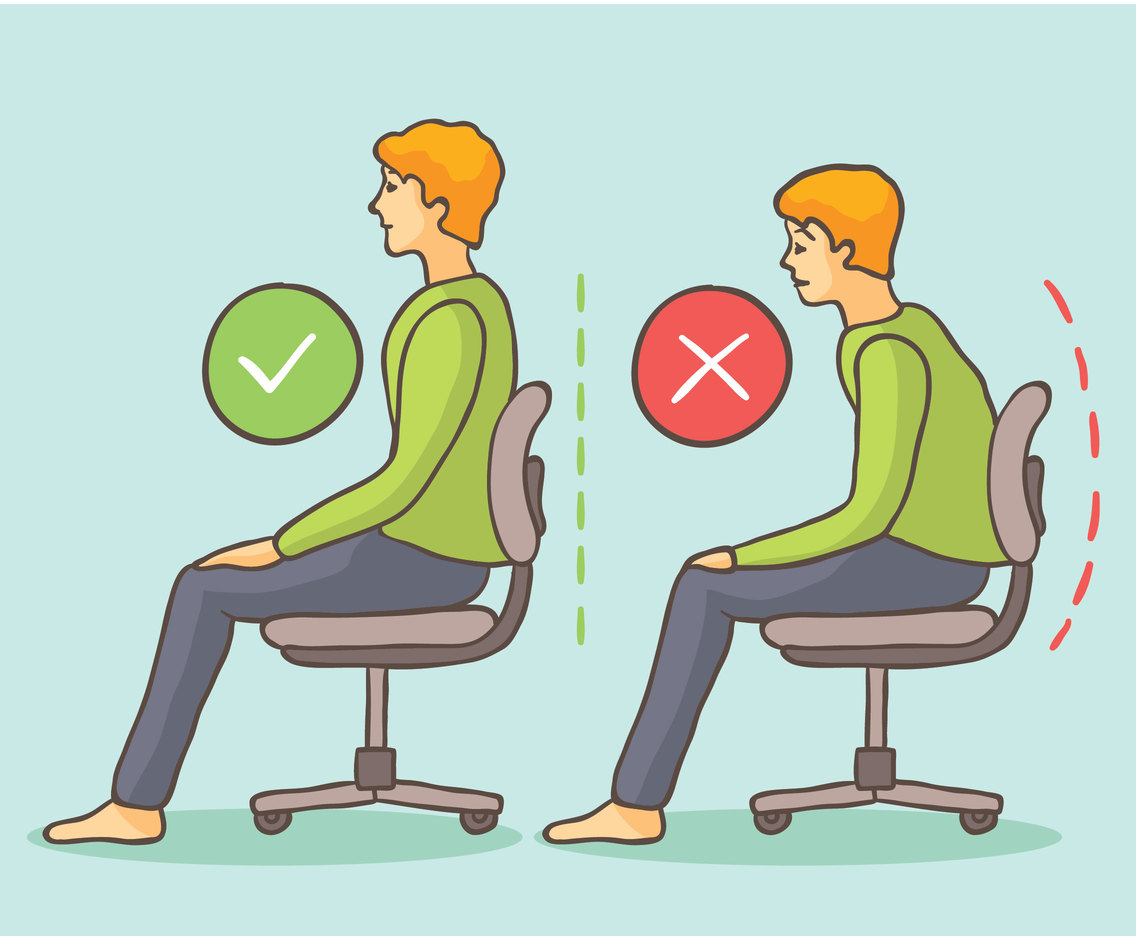
Nerve and tendon related musculoskeletal disorders such as carpal tunnel syndrome and epicondylitis can arise from awkward postures and repetitive motion associated with keyboard and mouse use. Monitor position can contribute to neck and shoulder pain. Regardless of the source, discomfort and pain in the workplace reduces worker performance and results in lowered job satisfaction.
Scary, considering you likely spend 8 hours a day sitting (improperly) at your desk.
Invest in A Standing Desk (Adjustable Ergonomic Working Desk – DubaB8)
By standing at certain hours during working time, it can increase your productivity through a reduction in work break time as it leads to fewer and shorter breaks throughout the day. In fact, non-standers took an average of 47 percent more work breaks and each work break was 56 percent longer than that of the standers.
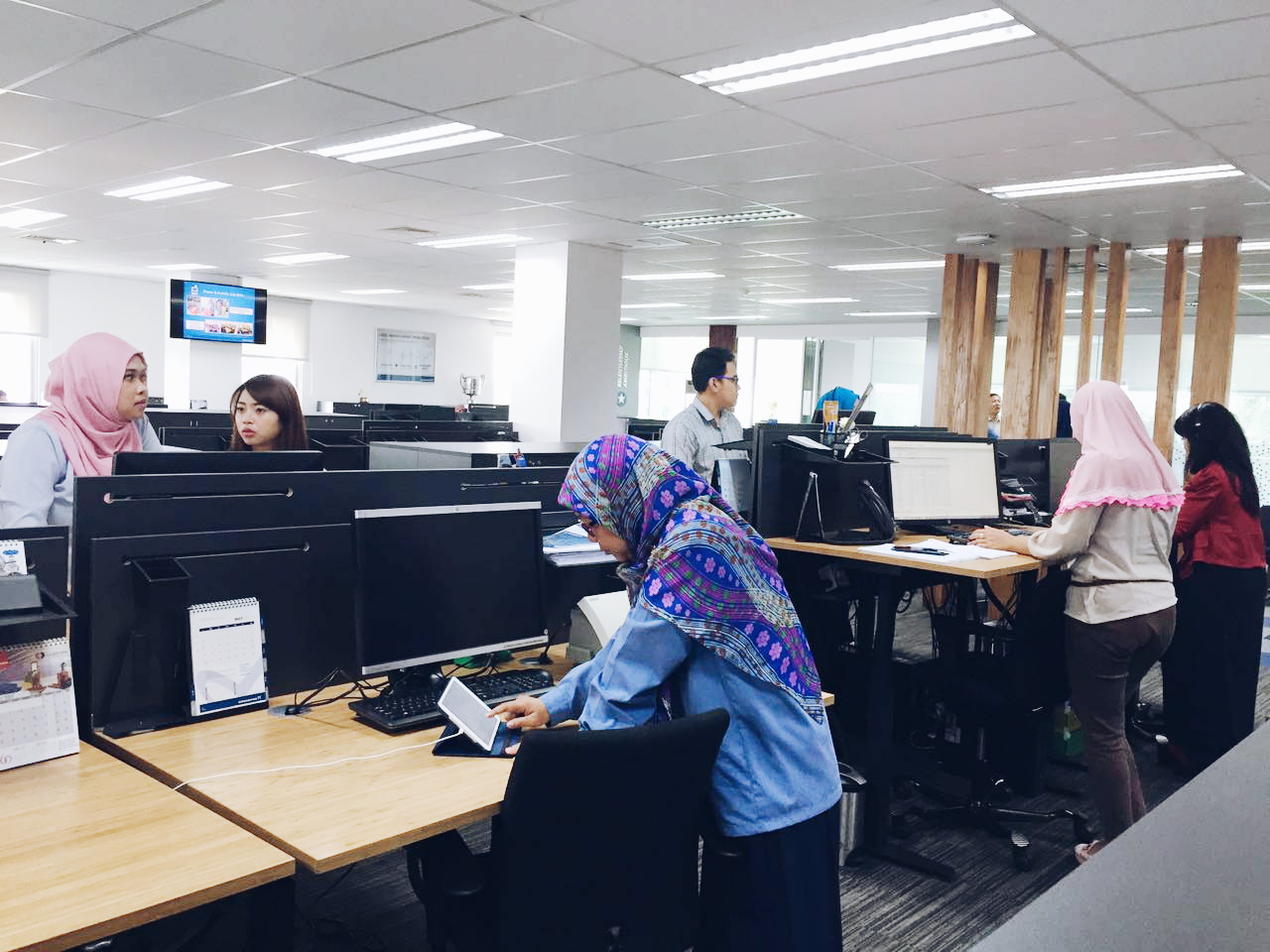
Over a three-day period, non-standers took over twice as much total time on breaks from work as the standers did — clearly having an effect on productivity. Consider putting in a request at the office for a standing desk; more and more employers are making them available to their employees.
Schedule Breaks Often

If you aren’t standing at your desk, it’s vital to schedule those work breaks into your daily routine. Experts recommends taking two or three 30- to 60-second breaks each hour to allow your body to recover from periods of repetitive stress. You may think that more breaks equal less work getting done — but you’d be wrong. The productivity of workers tended to work for 52 consecutive minutes followed by a 17-minute break.
So setting a timer to stand up and get away from your desk for a bit may lead to getting more work done, in less time. May we also suggest drinking more water? Not only will you be getting up to fill your bottle, but you’ll likely also make more frequent trips to the bathroom, ensuring you’re getting up from your desk throughout the day.
Lighting
Adding a light to your desk isn’t just a means of decorating — it’s actually healthier for your eyes. Experts say a desk light is essential for viewing hard copy documents, as it helps prevent glare and Computer Vision Syndrome — a condition affecting up to 90 percent of computer users which causes eyestrain, eye fatigue, dry eyes, light sensitivity, blurred vision, headaches and other symptoms. In fact, as we get older the amount of light contrast required increases dramatically.
On frame is HAG Futu Chair with DubaB8 Adjustable Desk.
When using a task light, the ambient light levels can be reduced to optimize viewing conditions for computer monitors. Task and ambient lighting schemes have been shown to improve visual comfort and reduce energy consumption by up to 40 percent. Be sure to position the task light to the side opposite your writing hand, and shine it on paper documents but away from computer monitors to reduce glare.
Monitor
The improper height and position of your monitor is another factor that causes us to lean forward at our desks. First, position your monitor so that it is at least an arm’s length away.
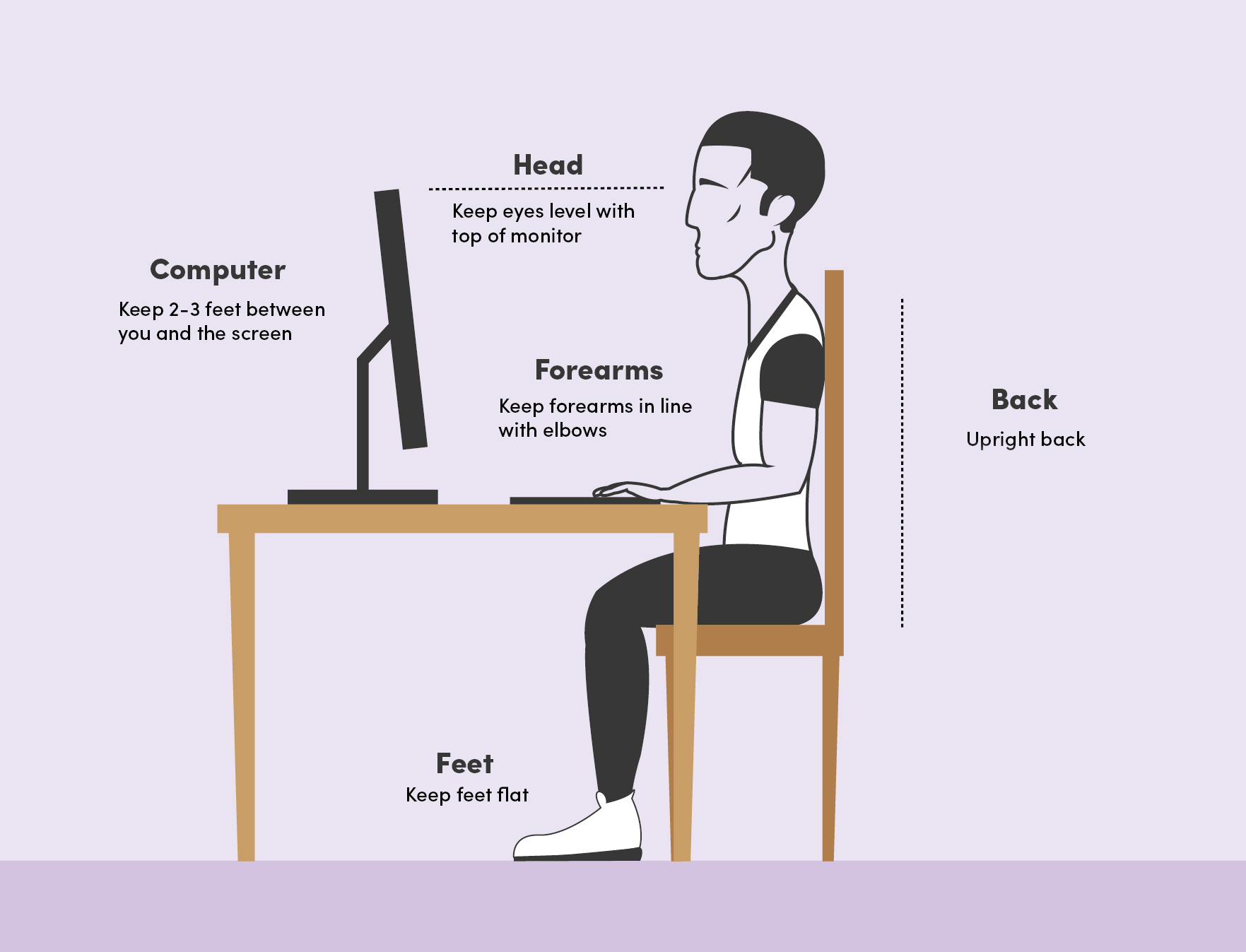
To optimize viewing comfort, the top line of text should be positioned at or slightly below seated eye height. The monitor should be angled slightly away from the body such that your natural downward viewing gaze is about perpendicular to the surface of the monitor.
Mouse
Yes, even how you hold and manipulate your mouse can influence your comfort level and risk of injury. Investing in a mouse that has an integrated palm support, which eliminates the need to anchor your wrist on the desk, allowing you to naturally move the mouse with your lower arm and shoulder, while keeping your wrist straight, this is what Posturite offered for you.
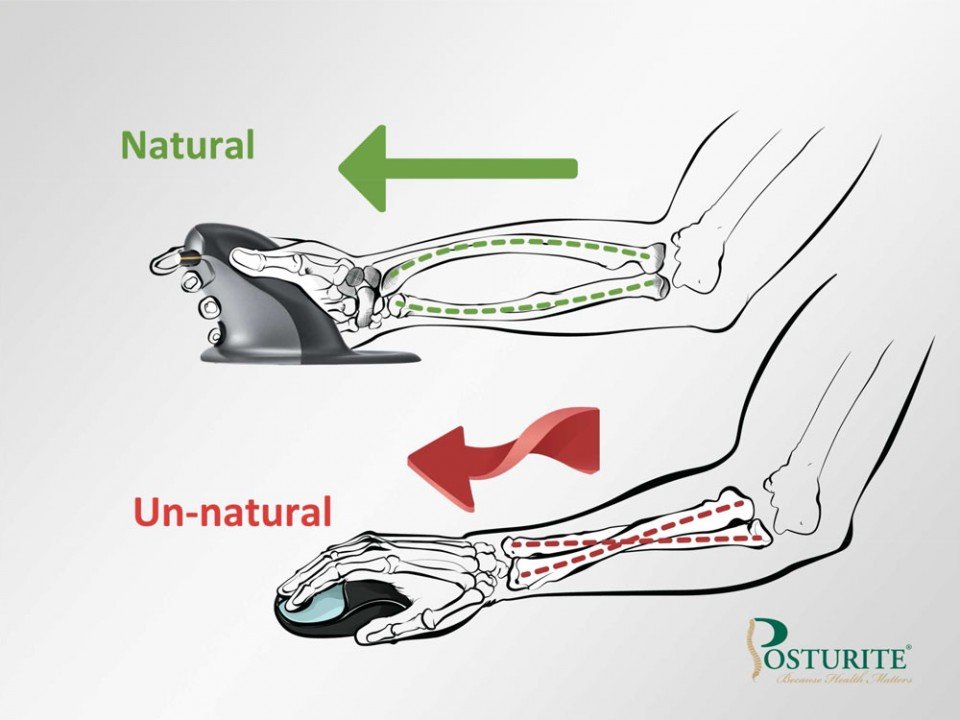
Until you can get your hands on a mouse with a palm support, the experts recommend positioning your mouse close to the keyboard or over the numeric keypad to minimize reaching. Avoid anchoring your wrist on the desk. Instead, glide the heel of your palm over the mousing surface and use your entire arm to mouse.
HÅLLNING (used to be known as Ergoworld) means “Posture” in Swedish. We focus on Ergonomic Furniture (Chairs, working table, Workstation)
Pacific Place Mall Jakarta
2nd Floor No. 73 | Sudirman Central Business District (SCBD)
Jl.Jend. Sudirman Kav. 52-53 Lot 3 & 5, Jakarta Selatan 12190, Indonesia
T: +62 21 57973256 | F: +62 21 57973258
E: info@hallning.com | Project enquiry: project@hallning.com





